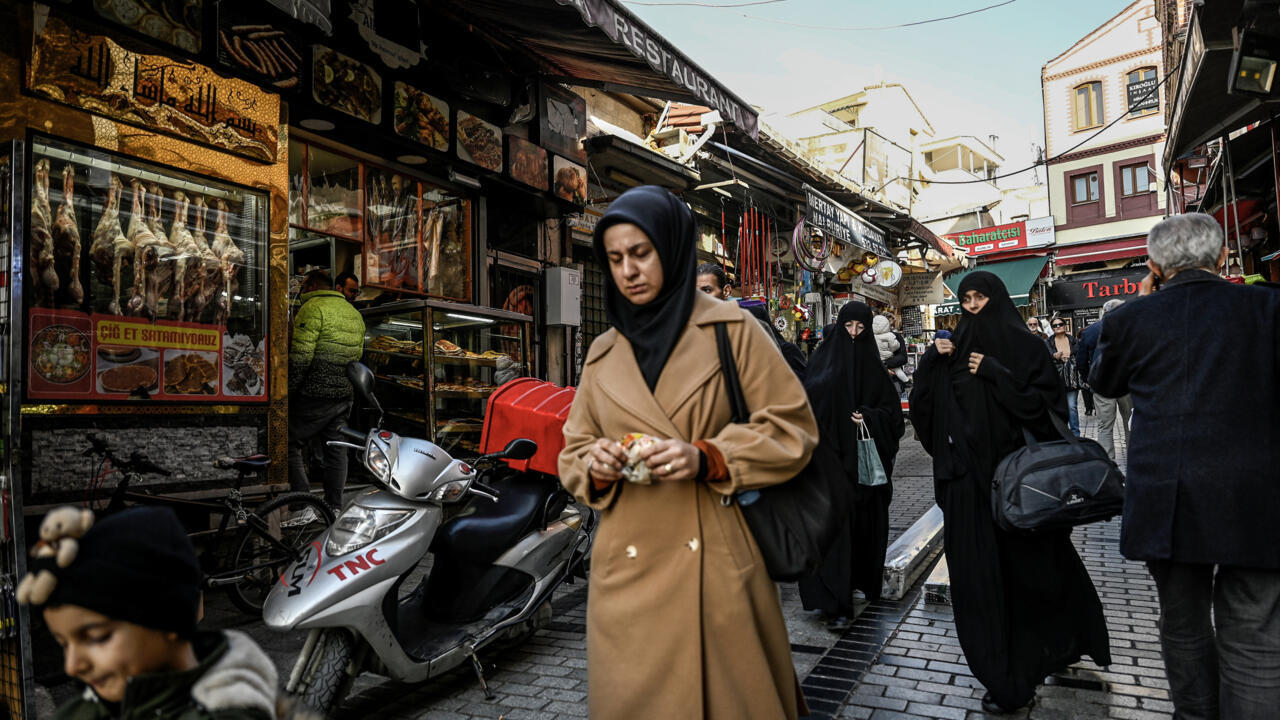More than 50,000 Syrian refugees have left Turkey to return home since Bashar al-Assad’s ouster. But for many others living in the country, the thought raises a host of worrying questions.
In Altindag, a northeastern suburb of Ankara home to many Syrians, Radigue Muhrabi, who has a newborn and two other children, said she could not quite envisage going back to Syria “where everything is so uncertain”.
“My husband used to work with my father at his shoe shop in Aleppo but it was totally destroyed. We don’t know anything about work opportunities nor schools for the kids,” she said.
After the civil war began in 2011, Syria’s second city was badly scarred by fighting between the rebels and Russian-backed regime forces.
Even so, daily life in Turkey has not been easy for the Syrian refugees who have faced discrimination, political threats of expulsion and even physical attacks.
In August 2021, an angry mob smashed up shops and cars thought to belong to Syrians in Altindag as anti-migrant sentiment boiled over at a time of deepening economic insecurity in Turkey.
Basil Ahmed, a 37-year-old motorcycle mechanic, recalled the terror his two young children experienced when the mob smashed the windows of their home.
Even so, he said he was not thinking of going straight back.
“We have nothing in Aleppo. Here, despite the difficulties, we have a life,” he said.
“My children were born here, they don’t know Syria.”
As the Assad regime brutally cracked down on the population, millions fled in fear, explained Murat Erdogan, a university professor who specialises in migration.
“Now he’s gone, many are willing to return but the Syria they left is not the same place,” he told AFP.
“Nobody can predict what the new Syrian government will be like, how they will enforce their authority, what Israel will do nor how the clashes (with Kurdish fighters) near the Turkish border will develop,” he said.
“The lack of security is a major drawback.”
On top of that is the massive infrastructure damage caused by more than 13 years of civil war, with very limited electricity supplies, a ruined public health service and problems with finding housing.
At the SGDD-ASAM, a local association offering workshops and advice to migrants, 16-year-old Rahseh Mahruz was preparing to go back to Aleppo with her parents. But she knew she would not find the music lessons there that she has enjoyed in Ankara.
Of the 2.9 million Syrians in Turkey, 1.7 million are under 18 and have few emotional links to their homeland, said the association’s director Ibrahim Vurgun Kavlak.
“Most of these youngsters don’t have strong emotional, psychological or social ties with Syria. Their idea of Syria is based on what their families have told them,” he explained.
And there may even be problems with the language barrier, said professor Erdogan.
“Around 816,000 Syrian children are currently studying in Turkish schools. They have been taught in Turkish for years and some of them don’t even know Arabic,” he said.
During a visit to Turkey earlier this week, EU crisis commissioner Hadja Lahbib told AFP she shared “the sense of uncertainty felt by the refugees”.
If there ends up being a huge wave of Syrians heading home, it will likely have an unsettling impact on certain sectors of Turkey’s workforce.
Although they are often paid low wages, commonly under the table, their absence would leave a gaping hole, notably in the textile and construction industries.
For Erdogan, the economic shock of such a shift could ultimately be beneficial for Turkey, forcing it to move away from the exploitation of cheap labour.
“We cannot continue a development model based on exploitation,” he said.


